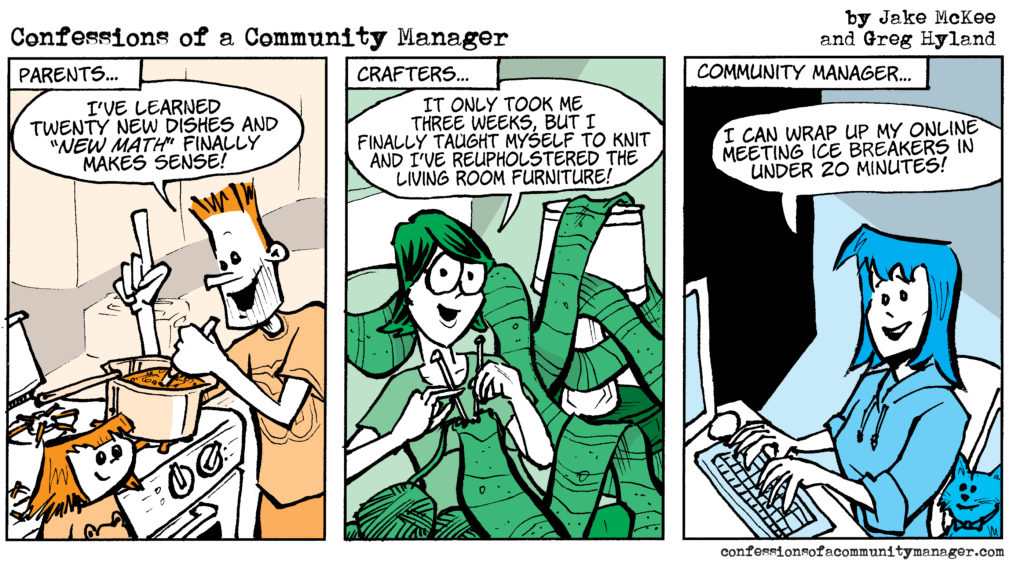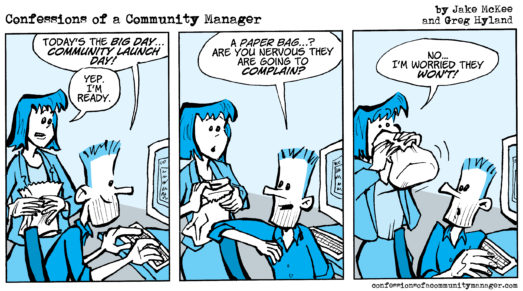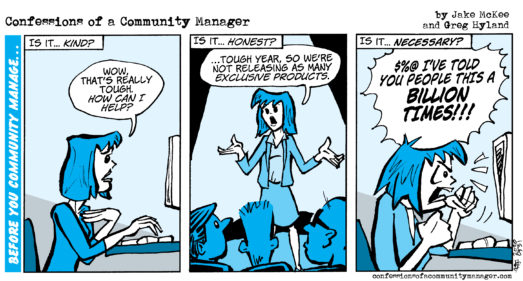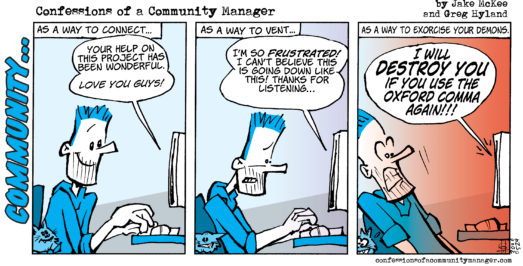New skills
In my career I’ve had the pleasure of interacting with a large range of professionals, from CPAs to lawyers to manufacturing line workers to engineers (of just about any variety you can name) to marketers to call center reps to senior executives to CEOs to designers to construction workers to event planners to non-profit organizers to union reps to FDA inspectors to doctors…the list goes on.
I’m pretty proud of this, if I’m honest. Not because it’s a huge accomplishment to have interacted with people from all walks of life; plenty of people get to do that. But because I’ve gotten to really dig in and work with people from all walks of life, all career fields, and from a ton of countries to boot. This means I’ve had to learn a ton about different industries, roles, personality types, and how to communicate with very, very different people. Often within minutes of meeting these folks.
This is a very important part of being an effective Community Professional.
Little known Jake fact: my college degree is actually a Bachelor of Fine Arts from Oklahoma State University. Long story short, my dream was to get a degree in Product Design (designing physical stuff like toasters and self-piloting lawn mowers). Through some bumps in the road, I ended up at OSU and needed to stay at this VERY cheap state school rather than transferring out of state to the VERY expensive schools I was accepted to that had formal product design degree tracks. So I worked with a local product designer and my OSU guidance counselor to build a degree program that replicated (mostly) a product design curriculum at a school that didn’t have one. I then had to lobby the school to grant me one of their generic BFA degrees they gave out in special cases to people in unique circumstances. Like mine. This was a process that I had to present to a bunch of college staff and eventually the college president for approval.
Once this was approved, I had to actually go get the degree. I spent half my day in the school of Graphic Design and the other half in the school of Mechanical Engineering. It was a weird day with a weird transition at lunch that often consisted of me eating a quiet lunch under a tree trying to get my mind right.
I never made it to the world of designing toasters… the internet stole that dream away from me. Well… replaced it with a new dream anyway. Now I just look at the aisles of big box stores with glee when new appliances come out.
But what I’ve come to realize is how much that product design degree process was teaching me (training me?) about community management.
That daily mental shift between the very, very, very different worlds of graphic designers and mechanical engineers helped me learn how to rapidly understand different languages, different ways of thinking, different approaches to problem solving and considering how the world works. It taught me to recognize when problems are rising up in the way two parties are communicating. It taught me to recognize, embrace, and manage how different two social groups can be, even when those groups are located only a few hundred feet apart from each other.
Today there is very little formal Community Management training of any significance. There are very few college degree programs, and only a few seminar-based, industry-driven training classes. This needs to change. We need more formal training and we need it now, if we want this industry to grow. This is absolutely something that can be taught.
Some of the best community managers I’ve met to date are the ones that have grown themselves organically by having a “can do” attitude and just jumping in. There’s not necessarily a perfect personality type or perfect resume. The best CMs are the ones that just jump in and start helping out but have a love for community. But this doesn’t mean that we can’t do better with more formalize training and apprenticeship programs. Just because we’ve gotten by organically doesn’t mean we have to keep getting by organically.
In my consulting practice work, I regularly work with clients as a mentor/mentee arrangement. I look over my client’s shoulder while they engage in their community, offering advice in how things can be communicated, what might happen if they communicate in a couple different optional paths, and then help draft messages or create content. It’s possible to train folks to learn these processes and techniques and skills.
This needs to scale into full degree programs!
Hey if marketers can do it with their fancy marketing degrees and marketing internships….. (fine, I’m just jealous)



